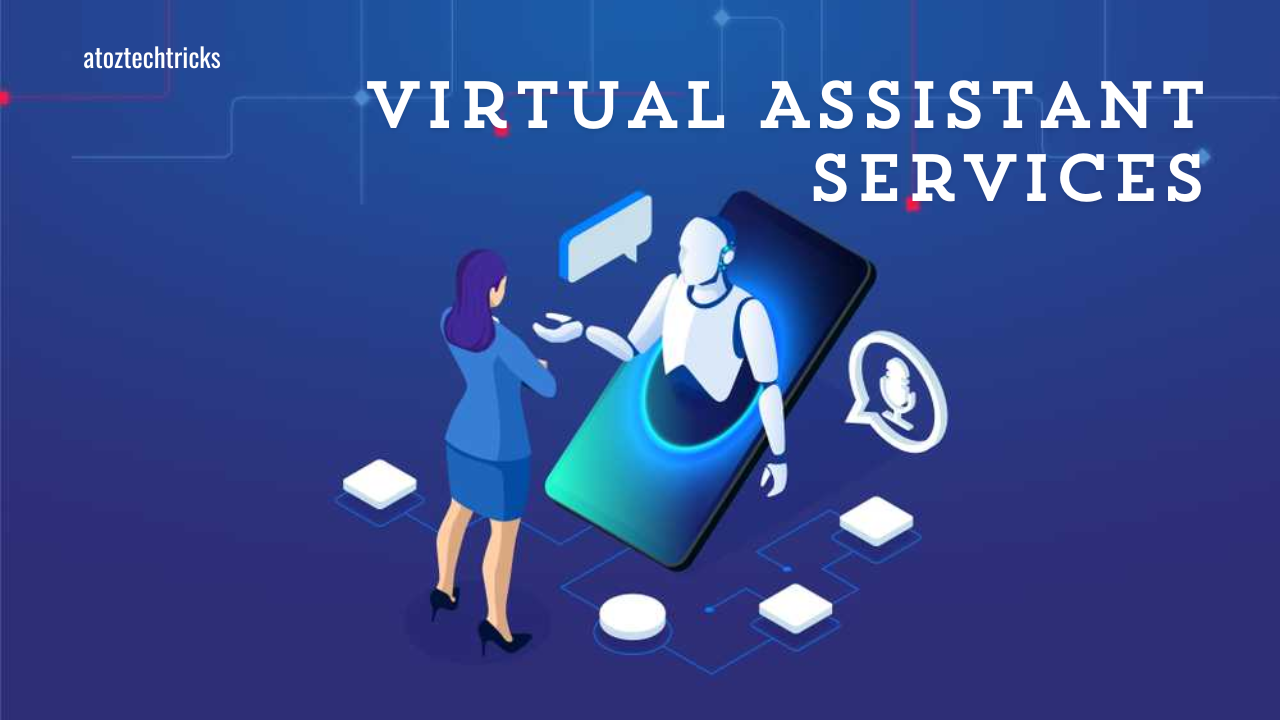Virtual Assistant Services: Revolutionizing Modern Work Environments
In today’s fast-paced business world, efficiency and flexibility are crucial. One solution that has gained significant traction is the use of virtual assistants (VAs). Virtual assistant services have transformed the way businesses operate, offering an array of benefits from cost savings to enhanced productivity. This comprehensive guide delves into the realm of virtual assistant services, exploring their advantages, types, roles, and how they can be effectively integrated into various business models.
What is a Virtual Assistant?
A virtual assistant is a remote worker who provides administrative, technical, or creative support to businesses or individuals. Unlike traditional employees, virtual assistants work remotely, often from their own homes or offices, utilizing digital communication tools to collaborate with clients. This arrangement allows businesses to access a wide range of expertise without the need for physical office space or full-time employment contracts.
Advantages of Virtual Assistant Services
1. Cost Efficiency
One of the most compelling reasons to hire a virtual assistant is the cost savings. Virtual assistants are typically independent contractors, which means businesses avoid expenses related to employee benefits, office space, and equipment. Companies can also choose from a range of hourly rates or project-based fees, making it easier to budget for their services.
2. Flexibility and Scalability
Virtual assistants offer unparalleled flexibility. Businesses can scale their support needs up or down based on their current requirements. This flexibility is particularly advantageous for startups and growing companies that may experience fluctuating workloads.
3. Access to a Global Talent Pool
By leveraging virtual assistant services, businesses can tap into a diverse global talent pool. This access allows companies to find specialists with specific skills or experience that may not be available locally. For instance, a company might hire a VA with expertise in social media marketing from another country, bringing a unique perspective and skills to the table.
4. Increased Productivity
Virtual assistants can handle a wide range of tasks, from administrative duties to specialized functions. By delegating routine or time-consuming tasks to a VA, businesses can allow their in-house teams to focus on core activities, thereby increasing overall productivity and efficiency.
5. Time Zone Advantages
For businesses that operate across different time zones, virtual assistants can provide round-the-clock support. A VA in a different time zone can continue to work on projects while the in-house team is offline, ensuring that deadlines are met and progress is maintained without interruption.

Types of Virtual Assistant Services
Virtual assistant services cover a broad spectrum of tasks and specializations. Here are some common types:
1. Administrative Support
Administrative virtual assistants manage day-to-day operations such as scheduling, email management, data entry, and document preparation. They help streamline administrative processes, ensuring that the business runs smoothly and efficiently.
2. Social Media Management
Social media virtual assistants handle tasks related to managing and growing a company’s social media presence. This includes content creation, posting, engagement with followers, and analyzing performance metrics. Their expertise can help businesses build a strong online brand and reach a wider audience.
3. Customer Service
Customer service VAs provide support to clients through various channels, including email, chat, and phone. They handle inquiries, resolve issues, and ensure that customers receive prompt and satisfactory responses, enhancing the overall customer experience.
4. Content Creation
Content creation VAs focus on producing high-quality content for blogs, websites, and marketing materials. They may write articles, create graphics, or produce videos, helping businesses maintain an engaging and consistent content strategy.
5. Bookkeeping and Accounting
Bookkeeping and accounting VAs assist with financial tasks such as invoicing, expense tracking, and financial reporting. They help ensure that financial records are accurate and up-to-date, which is essential for effective financial management.
6. Personal Assistance
Personal virtual assistants manage tasks related to personal life and business, such as travel arrangements, appointment scheduling, and personal errands. This service helps individuals balance their professional and personal responsibilities more effectively.
7. Technical Support
Technical support VAs provide assistance with IT-related issues, including troubleshooting software problems, managing website updates, and ensuring cybersecurity. Their expertise is valuable for businesses that rely heavily on technology.
Intersection of Graphic and Web Design: Crafting Visual Experiences in the Digital Age
Integrating Virtual Assistant Services into Your Business
To maximize the benefits of virtual assistant services, businesses need to integrate them effectively into their operations. Here are some steps to ensure a smooth integration:
1. Define Your Needs
Before hiring a virtual assistant, clearly define the tasks and responsibilities you want them to handle. This helps in selecting the right VA with the appropriate skills and ensures that both parties have a clear understanding of the job requirements.
2. Choose the Right Virtual Assistant
Selecting a virtual assistant involves evaluating their skills, experience, and compatibility with your business needs. Conduct interviews, check references, and review their previous work to ensure they are a good fit for your requirements.
3. Set Clear Expectations
Establish clear expectations and guidelines for communication, deadlines, and deliverables. This ensures that the VA understands their role and can perform their tasks effectively. Regular check-ins and feedback sessions can help maintain alignment and address any issues promptly.
4. Utilize Communication Tools
Effective communication is key to a successful collaboration with a virtual assistant. Use tools such as email, instant messaging, and project management software to facilitate smooth and efficient communication. Tools like Slack, Trello, and Asana can help manage tasks and track progress.
5. Implement Security Measures
When working with a virtual assistant, it is essential to implement security measures to protect sensitive information. Use secure communication channels, set up password protections, and ensure that the VA adheres to confidentiality agreements.
6. Monitor and Evaluate Performance
Regularly monitor the performance of your virtual assistants to ensure that they are meeting your expectations. Provide constructive feedback and make adjustments as needed to optimize their performance and effectiveness.

Common Challenges and Solutions
While virtual assistant services offer numerous benefits, there are also potential challenges. Here are some common issues and solutions:
1. Communication Barriers
Challenge: Remote work can lead to communication barriers, resulting in misunderstandings or delays.
Solution: Establish clear communication channels and protocols. Regular check-ins and updates can help keep everyone on the same page and address any issues promptly.
2. Time Zone Differences
Challenge: Working with virtual assistants in different time zones can lead to delays in response and coordination.
Solution: Set clear expectations for response times and use tools that facilitate asynchronous communication. Plan and account for time zone differences when scheduling tasks and deadlines.
3. Quality Control
Challenge: Ensuring the quality of work from a remote assistant can be challenging.
Solution: Set clear standards and provide detailed instructions. Review the work regularly and offer feedback to ensure that the quality meets your expectations.
4. Security Concerns
Challenge: Sharing sensitive information with a remote worker can pose security risks.
Solution: Implement strict security protocols, including secure communication channels and access controls. Ensure that the VA understands and adheres to confidentiality agreements.
The Future of Virtual Assistant Services
The virtual assistant industry is evolving rapidly, driven by advancements in technology and changes in the way we work. Here are some trends shaping the future of virtual assistant services:
1. AI and Automation
Artificial intelligence (AI) and automation are transforming virtual assistant services. AI-powered virtual assistants can handle routine tasks such as scheduling and data entry with greater efficiency. Automation tools can streamline processes and improve productivity.
2. Specialization and Niche Services
As the demand for virtual assistants grows, there is an increasing focus on specialization and niche services. Virtual assistants with expertise in specific industries or functions, such as legal or medical support, are becoming more prevalent.
3. Enhanced Communication Tools
Advancements in communication tools are making it easier for virtual assistants to collaborate with clients. Video conferencing, project management software, and real-time collaboration platforms are enhancing the efficiency of remote work.
4. Greater Integration with Business Processes
Virtual assistants are increasingly becoming integrated into business processes. They are not only handling administrative tasks but also contributing to strategic initiatives, such as marketing and customer engagement.

Virtual assistant services have revolutionized the modern work environment, offering businesses a flexible, cost-effective solution to manage various tasks and functions. By leveraging the expertise of virtual assistants, companies can enhance productivity, access a global talent pool, and achieve greater operational efficiency. However, it is essential to address challenges such as communication barriers and security concerns to ensure successful collaboration.
As technology continues to advance, the role of virtual assistants will evolve, bringing new opportunities and capabilities to businesses worldwide. Embracing virtual assistant services can provide a competitive edge and help organizations navigate the complexities of the modern business landscape with greater ease and efficiency.




Post Comment